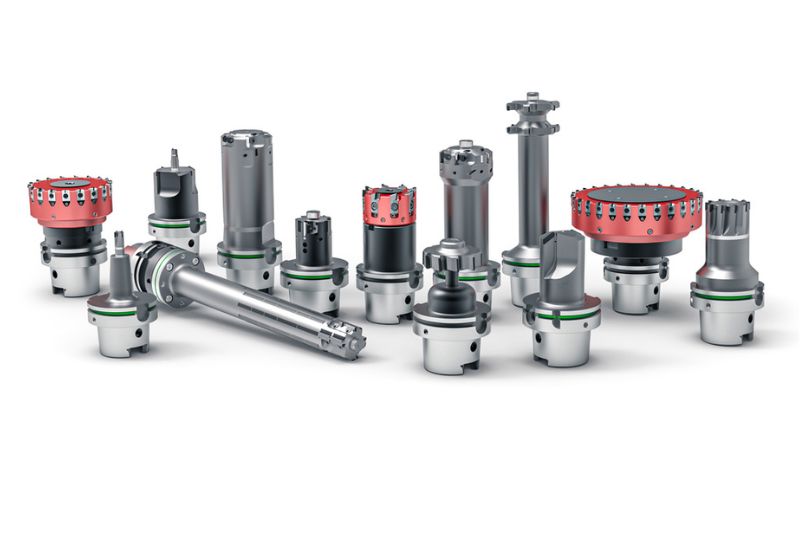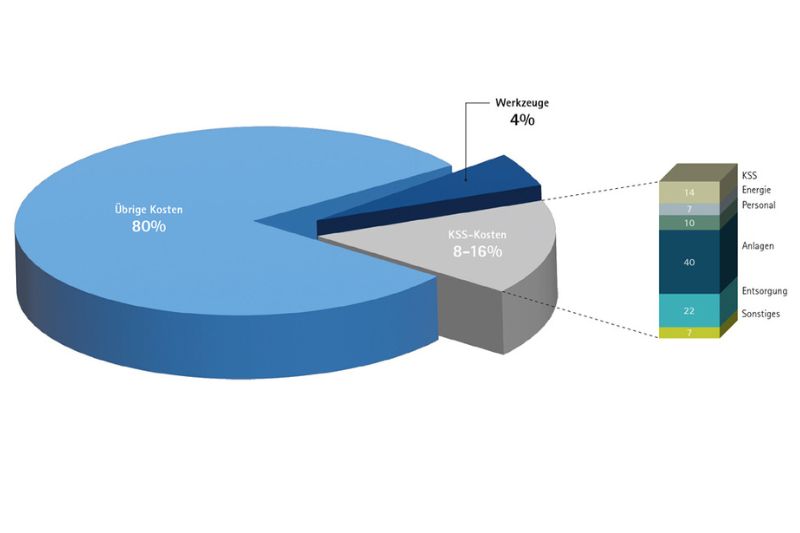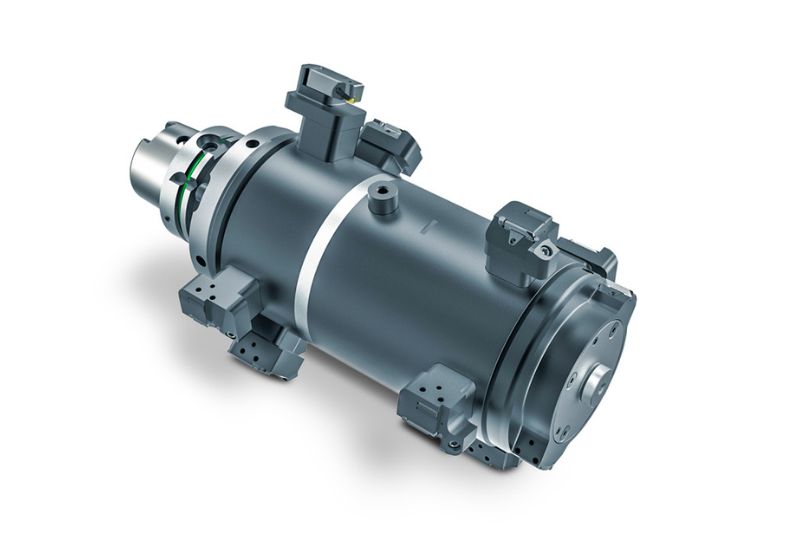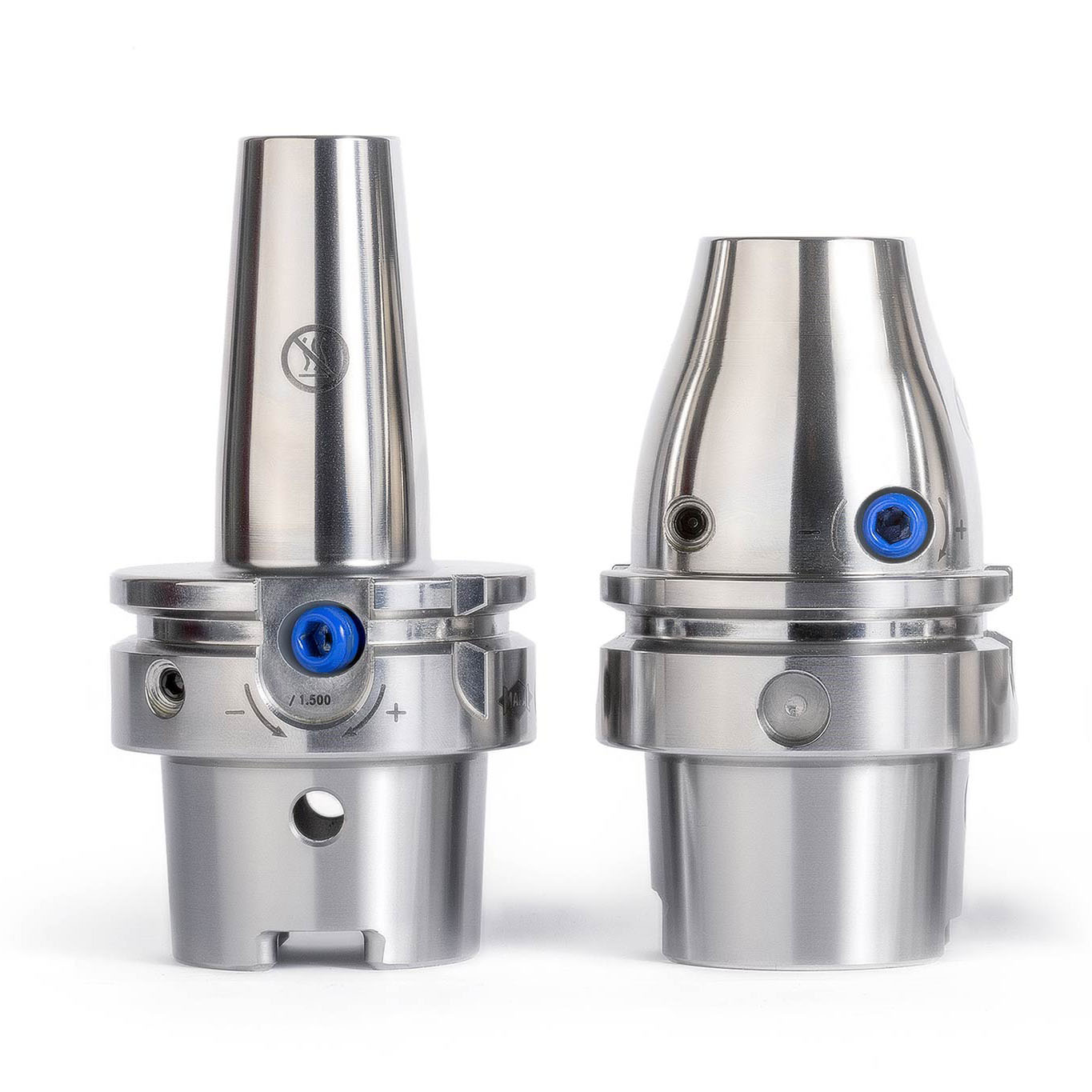16.11.2022
Green tools protect resources
Minimum quantity lubrication with MAPAL
With the advent of machining with minimum quantity lubrication (MQL) nearly 30 years ago, the appeal of this technology was its potential cost savings. Today, protecting resources, energy efficiency and an improved carbon footprint take centre stage. The use of MQL is particularly appealing for new manufacturing lines, such as for e-mobility.

To successfully implement MQL, all parts must be coordinated in the production process. The machine, MQL system, medium, workpiece material, clamping fixture, process sequence, extractor system, tool and clamping technology form one unit. MAPAL offers almost all its tools in versions for MQL too. The Aalen-based manufacturer marks tools and clamping tools suitable for this resource-saving use with a green label.
In these “green tools”, the MQL connections and cooling channels are modified in such a way that the MQL medium is transported to the cutting and guide elements of the tools in a constant and flow-oriented manner. The outlets are closer to the cutting point and have steeper outlet angles than in tools for wet machining. To assist with chip removal, chip spaces in tools suitable for MQL are twisted, polished and made larger where necessary.
Less lubricant means lower energy consumption

Beim Einsatz herkömmlicher Kühlschmiertechnik in einem Bearbeitungszentrum entfallen auf deren Komponenten Hochdruck, Niederdruck, Rückpumpe und Hochdruckfilter insgesamt rund 50 Prozent des ganzen Energieverbrauchs. Auch wenn durch den Einsatz der MMS-Technologie der Verbrauch von Druckluft steigt, bleibt in Summe eine mögliche Energieeinsparung von bis zu 40 Prozent – eine wesentliche Verbesserung der CO2-Bilanz in der Produktion. Zur Ressourcenschonung gehören auch nachweislich längere Standzeiten der Werkzeuge im MMS-Einsatz vor allem bei der Bearbeitung von Aluminium. Belegbar ist dies vor allem durch die Vermeidung des Thermoschock-Effektes, welcher bei der Nassbearbeitung auftritt.
MAPAL stellt derzeit eine höhere Nachfrage nach Prozessen mit Minimalmengenschmierung vor allem aus asiatischen Ländern fest. Dabei ist hier die Schonung von Ressourcen von Anfang an ein Argument. Dass Späne nicht mehr aufbereitet werden müssen, sondern ohne Reinigungsprozesse weiterverarbeitet werden können, erleichtert zudem die Abläufe.
In Deutschland forcieren Automobilhersteller seit einigen Jahren den Umstieg auf MMS. Komplett gelang die Umstellung allerdings nicht. Zum einen sprechen in manchen Bereichen wirtschaftliche Gründe dafür, vorhandene Maschinen, Kühlpumpen und Aufbereitungsanlagen weiter zu betreiben. Unter Umständen sind es auch etablierte Prozesse, die fortgeführt werden.
Wenn es aber um die Einrichtung neuer Fertigungslinien geht, kommt MMS von Anfang an ins Spiel. Das gilt insbesondere für die Elektromobilität. Die Industrie hat großes Interesse daran, gerade auch die Bauteile für umweltfreundliche Fahrzeuge möglichst ressourcenschonend mit niedrigen CO2-Emissionen herzustellen. MAPAL ermöglicht inzwischen auch den MMS-Einsatz für komplexe Präzisionswerkzeuge, die anfangs noch nicht dafür ausgelegt waren.
Werkzeuge für die E-Mobilität

Ein Beispiel ist das Werkzeug für die Bearbeitung der Statorbohrung eines Elektromotors. Sein großer Bearbeitungsdurchmesser bedingt eine komplexe Kühlkanalführung im Werkzeug und einen an die Wirkstelle anpassbaren Anströmwinkel des MMS-Mediums. MAPAL konnte die entsprechende Kühlkanalführung im Werkzeug unter anderem mithilfe der additiven Fertigung realisieren. Der 3D-Druck und angepasste Übergabeelemente innerhalb des Werkzeuges macht eine gleichbleibend gute Versorgung aller Schneid- und Führungselemente mit MMS möglich. Weil mit sehr geringen Ölmengen und großen Längen-Durchmesserverhältnissen gearbeitet wird, sind Abdichtungen der Übergabestellen, sowie versackungsfreie und strömungsoptimierte Kühlkanäle im Grundkörper besonders wichtig. Die additive Fertigung, die auch für andere MMS-Werkzeuge eingesetzt wird, ermöglicht zudem angepasste Durchmesser für die Druckluft, was sich mit einem niedrigeren Luftmengenverbrauch ebenfalls günstig auf die Energiebilanz auswirkt.
Die MMS-Technologie wird laufend weiterentwickelt. Neue, qualitativ hochwertige Gerätegenerationen der MMS-Systemhersteller in Kombination mit hochwertigen Medien gewährleisten immer feinere Aerosole beziehungsweise Öl-Luft-Gemische. Darüber hinaus wird die Abstimmung zwischen MMS-System und den einzelnen Werkzeugen optimiert, um für jede Anwendung eine genau dosierte, bedarfsgerechte Ölmenge zur Verfügung stellen zu können. So liefert die Zerspanung mit Minimalmengenschmierung einen noch größeren Beitrag zur Nachhaltigkeit in fertigenden Unternehmen.

Kontakt
Kathrin Rehor Public Relations Kathrin.Rehor@mapal.com Tel.: +49 7361 585 3342



